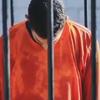Borzou Daragahi appears in the following:
Erdogan Addresses Turkish Parliament on Khashoggi's Death
Tuesday, October 23, 2018
Turkey's President Erdoğan Calls Snap Election in June
Thursday, April 19, 2018
As Death Toll Rises, Concerns Grow Over Iranian Protests
Wednesday, January 03, 2018
Even With U.S. Support, Is There Any Hope for Peace in Syria?
Wednesday, August 09, 2017
Gulf Crisis: ISIS Hits Iran
Wednesday, June 07, 2017
News Brief: London Terror Attack, Several Nations Cut Ties With Qatar
Monday, June 05, 2017
What's Next for U.S.-Turkey Relations?
Thursday, February 09, 2017
How the Assassination of Russia's Ambassador Could Shape Policy
Tuesday, December 20, 2016
What the Middle East Thinks of the Race for the White House
Thursday, November 03, 2016
ISIS Video Shocks Arab World
Friday, February 06, 2015
Fallout From Iran Currency Devaluation
Friday, October 05, 2012
Borzou Daragahi, Middle East and North Africa correspondent for the Financial Times, and Thomas Erdbrink, New York Times Tehran Bureau chief, discuss the fallout from the devaluation of Iran's currency.
Damascus in Disarray
Friday, July 20, 2012
Remembering Anthony Shadid
Friday, February 17, 2012
This morning we are heartbroken to report that Anthony Shadid of our partner The New York Times is no longer one of the survivors. The veteran Middle East correspondent for The Times, Washington Post and Boston Globe and long time voice on this program has died. A fatal asthma attack while he was reporting in chaotic Syria, working undercover. His body carried across the Syrian border and home by a colleague yesterday.
International Plans to End Syrian Conflict
Monday, January 23, 2012
Over the past ten months, Syrian Security Forces have killed more than 5,000 protestors across the country. But this weekend, two key voices announced their calls to action: the Arab League will seek U.N. Security Council approval to peacefully end the rule of President Bashar al-Assad, and Senators Kirsten Gillibrand and Chuck Schumer introduced a bill that would block financial aid and create trade sanctions against Syrian leaders involved in the crackdown.
Middle East Update: Syria
Tuesday, August 09, 2011
Los Angeles Times Beirut Bureau Chief Borzou Daragahi reports on the latest developments in Syria, including the recall of the ambassadors of Saudi Arabia, Kuwait, and Bahrain.
NATO: A Divided Mission in Libya?
Friday, April 15, 2011
Secretary of State Hillary Clinton is in Berlin attending NATO meetings, where members of the alliance are debating whether to step up their attacks on Libyan forces. Meanwhile, Libyan rebels are warning of an immanent blood bath in the city of Misurata if NATO does not intensify their air attacks. Thursday, Col. Moammar Gaddhafi rode around around Tripoli in a convertible, defiantly waving his fists at the allied forces. What is the way forward for NATO and is its latest combat mission a reflection of how little it can do to with such a divided force?
Top of the Hour: No-Fly Zone Over Libya, Morning Headlines
Friday, March 18, 2011
The U.N. Security Council voted Thursday to enforce a no-fly zone over Libya, in a 10 to zero vote. Mideast bureau chief for the Los Angeles Times, Borzhou Daragahi, says that Col. Gadhafi and his loyalists were surprised by the news.
Tunisia: Checking In on the Jasmine Revolution
Wednesday, January 19, 2011
Steven Cook, senior fellow for the Middle Eastern Studies Council on Foreign Relations, and Borzou Daragahi, Los Angeles Times Beirut bureau chief, discuss what's happening on the ground in the Tunisian capital and what it means for the rest of the Middle East and North Africa.
Protests Continue in Tunisia
Friday, January 14, 2011
Thousands of demonstrators have gathered in the Tunisian capital, Tunis, to protest the rule of President Zine al-Abidine Ben Ali, who announced that he would not seek re-election in 2014. The country has been rattled for weeks by protests over high unemployment, inflation and corruption. The protests have left 23 dead.
Lebanon's Government Collapses
Thursday, January 13, 2011
The Lebanese government has collapsed following the resignation of eleven ministers from Hezbollah and its allies. Their resignation from the government came in the midst of a dispute over a U.N. tribunal, which has found ties between the 2005 assassination of former prime minister, Rafik Hariri, and Hezbollah.

